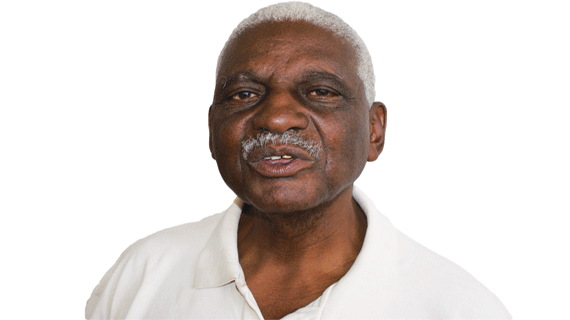
ONE way of defining culture is that it is the sum total of life, be it marriage practices, ways of hunting game, housing, education,(formal and informal), fighting, tilling the land to getting food and so on.
-I N MPOFU (uNyandeni oMpofu)
For any practice to become a culture it must be repeated over and over for a very long time with many people in the community catching up to it so that it becomes widespread.
It must have a common ownership by all members of a particular community.
This is true for language which develops over a long period of time and grows common vocabulary and accepted sentence structure.
In a real sense, language defines belongingness to a particular society, but language is dynamic — it continues to grow all the time.
In the course of time people develop certain ways of talking to each other — forming certain accepted rules to express their thoughts.
The words and sentences must be ordered and expressed in a particular given way, for example, in Ndebele we say, Silele ngendlala.
- Chamisa under fire over US$120K donation
- Mavhunga puts DeMbare into Chibuku quarterfinals
- Pension funds bet on Cabora Bassa oilfields
- Councils defy govt fire tender directive
Keep Reading
Two things can be noticed here: the word order does not give the same sense if it is ngendlala silele.
Secondly, there is the idiomatic use of language. A non-Ndebele speaker would ask: indlala ilala njani?
People use language in a particular way and express themselves literally or idiomatically.
It is not the intention to dwell on language theory in this series or to teach language as such: Grammar, idioms, vocabulary and so on, rather emphasis is put on the fact that language is culture and like any other culture, it must be executed in the right ways that are acceptable to the generality of society.
It should be pointed out that Ndebele (like other African languages) is facing a big challenge, namely the intrusion of English and to a lesser extent of other ethnic languages surrounding the Ndebele nation.
Many English words have their Ndebele equivalents like grass – utshani, thatch – fulela.
When English says:“I don’t like to live in a grass-thatched house” one would expect a Ndebele speaker to say, kangifuni ukuhlala endlini efulelwe ngotshani, but many would say: “Kangifuni ukuhlala in a grass-thatched house .” Why? All the words are there, but the English words are preferred.
Or, people generally Ndebelelise certain English words like kurongo lokho okwenzayo, indaba leyana isuke yafeyila, ngisori, ake lithi move back majita sivulele ibridal procession.
The words rongo and feyila are transliterated as in ngisori. The words have been adopted and adapted to the Ndebele system of production and graphics.
The merit of this is that borrowed words have been assimilated into the phonetic and phonemic structure of Ndebelewrong – rongo, fail – feyila, I am sorry – ngisori.
Such procedure is acceptable, but a Ndebele equivalent is available. We adopt a foreign word by transliterating it and not to keep its Englishness. Hence pump – impompi, spoon – isipunu, (although ukhezo is better), steamer – isitimela , pot – ibhodo, plank – ipulanka, and so on.
Such words are acceptable when expressed in Ndebele form.But ibhulankethi for blanket, ikhensa (cancer) for imvukuzane are not acceptable as there are better Ndebele ways of saying them.
Ngifuna iwani khaphu, ungifakele thu shugazi plizi; ngiyagula, lokudla ngiyazifosela; eyami inkunzi yipedigree bull are all interesting cases.
The point that is being made is that English as a language is smothering Ndebele very fast.
We are now at a stage where we are no longer proud of our heritage.
Some among us think that they hate(d) British colonisation and all that it stood for.
They had better think again. Amabhilititshi alokhu elibambe xhaka ngaphansi kwamabhulugwe.
They are your language masters and you pride yourself for being a fluent speaker of the Queen’s language By far the greatest offenders of the Ndebele language are the Christian churches, all of them, but worse the Pentecostals.
The claim that churches resort to the use of English because their audiences are multilingual is false and a myth.
I have yet to hear a sermon in Switzerland preached in some other language than Swiss.
That is the realm of our “stylish educated pastors”.
Once again the point that we are making (and insisting upon) is that people should be proud of their language by speaking it and reading it at all times.
At present, Ndebele books is available by the dozens, but it has few readers.
So-called “educated people” pride themselves by not being readers of Ndebele. They will say, “Ah, well, Ndebele is not readable.” They prefer to read English.
What mental slavery!










